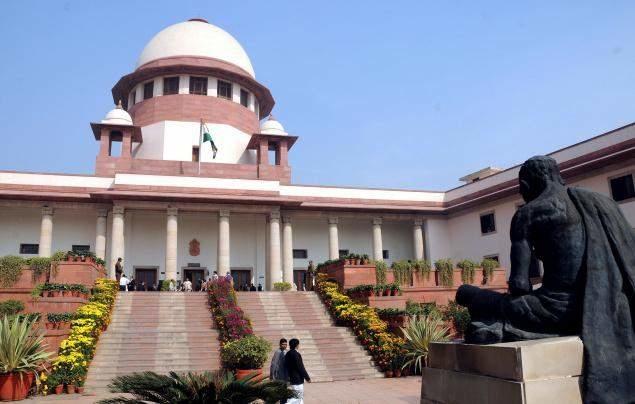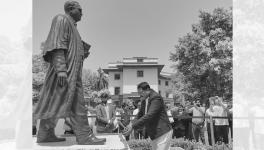Supreme Court Makes Changes in SC/ST (POA), Act, Centre Remains Silent

Image Courtesy: Indian Express
The Supreme Court, on March 20, introduced anticipatory bail provision in the Scheduled Castes and Scheduled Tribes (Prevention of Atrocities) Act which is against the Section 18 of the Act. The opposition parties are demanding the central government to make its stand clear in this regard.
“Unless exclusion of anticipatory bail is limited to genuine cases and inapplicable to cases where there is no prima facie case was made out, there will be no protection available to innocent citizens,” stated a bench comprising Justice A.K. Goel and Justice U.U. Lalit in the judgment of Dr Subhash Kashinath Mahajan vs the state of Maharashtra case.
The apex court gave directions in respect to cases filed under atrocities Act – a public servant can now only be arrested after the ‘approval’ sanctioned by an ‘appointing authority’ whereas in the case of ‘arrest of a non-public servant’, the approval by Senior Superintendent of Police (SSP) is required. Furthermore, the judgment said that in order to avoid any false implication of an ‘innocent’ accused, a preliminary enquiry may be conducted by the concerned Deputy Superintendent of Police (DSP).
Randeep Surjewala, Congress communication in-charge alleged the role of government in the weakening of the Act. “The court had issued a notice to the Centre. However, the attorney general did not appear before the court, and neither did the solicitor general. An additional solicitor general went to the court only as a formality,” Surjewala was quoted as saying.
Although the Act was enacted in 1989, it was commenced only after six years in March 1995 in the country. Despite this Act, there has been a massive increase in the number of incidents of crime against the Dalits and Adivasis across states. While the crime or atrocities against Scheduled Castes has increased from 38,670 in 2015 to 40,801 in 2016, the atrocities against Scheduled Tribes has increased from 6,276 in 2015 to 6,568 in 2016, according to the official National Crime Records Bureau data.
Despite the massive number of incidents of crime against SCs and STs, most of the cases are either pending in police stations or in courts.
While in 2016 alone, out of 56,299 cases of crime against SCs were said to be investigated (including cases pending from previous years) by the police across the country, in only 31,042 cases, the charge-sheets were filed. In the case of crime against STs, out of 9,096 cases, in only 5,277 cases charge-sheets were filed that year. Thus, while the very purpose of this Act, implementation of a quick and efficacious trial, remains unachieved, the entirety of the Act will cease to exist with the latest judgment.
Get the latest reports & analysis with people's perspective on Protests, movements & deep analytical videos, discussions of the current affairs in your Telegram app. Subscribe to NewsClick's Telegram channel & get Real-Time updates on stories, as they get published on our website.
























